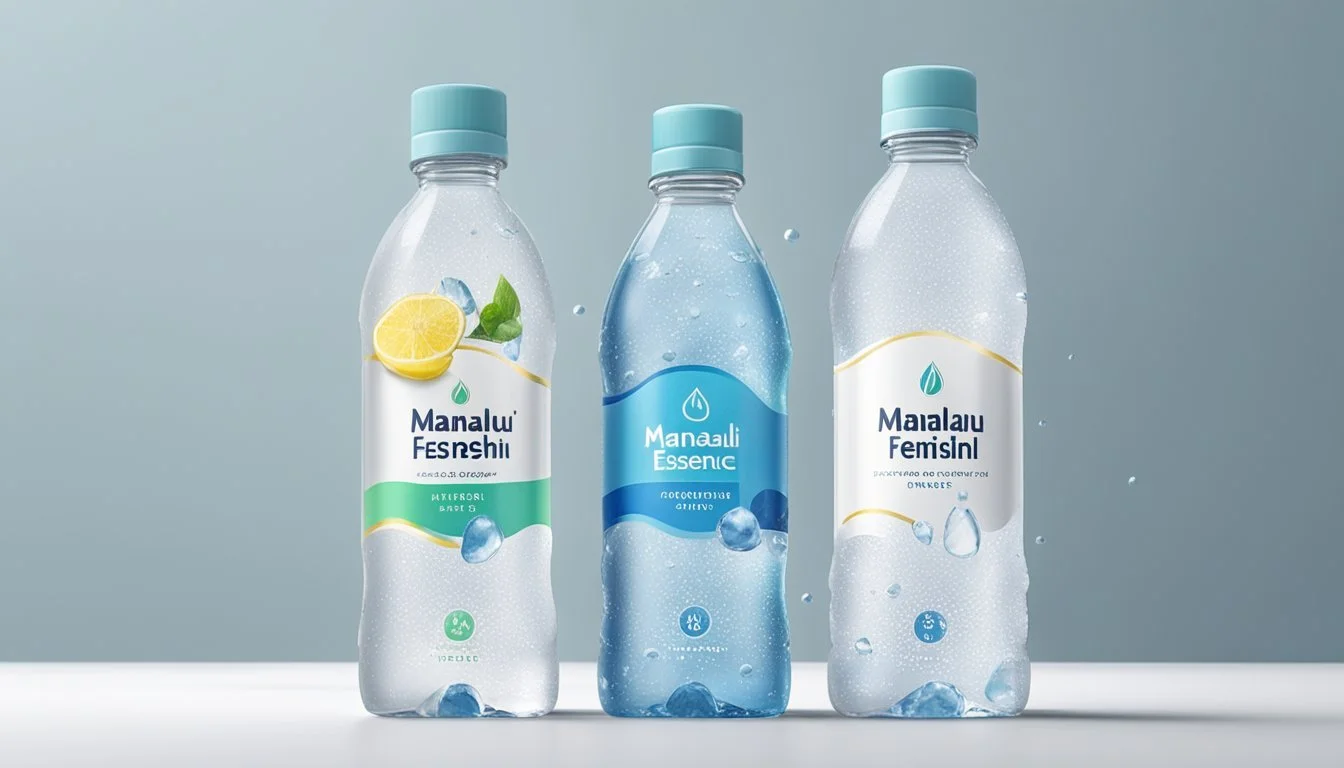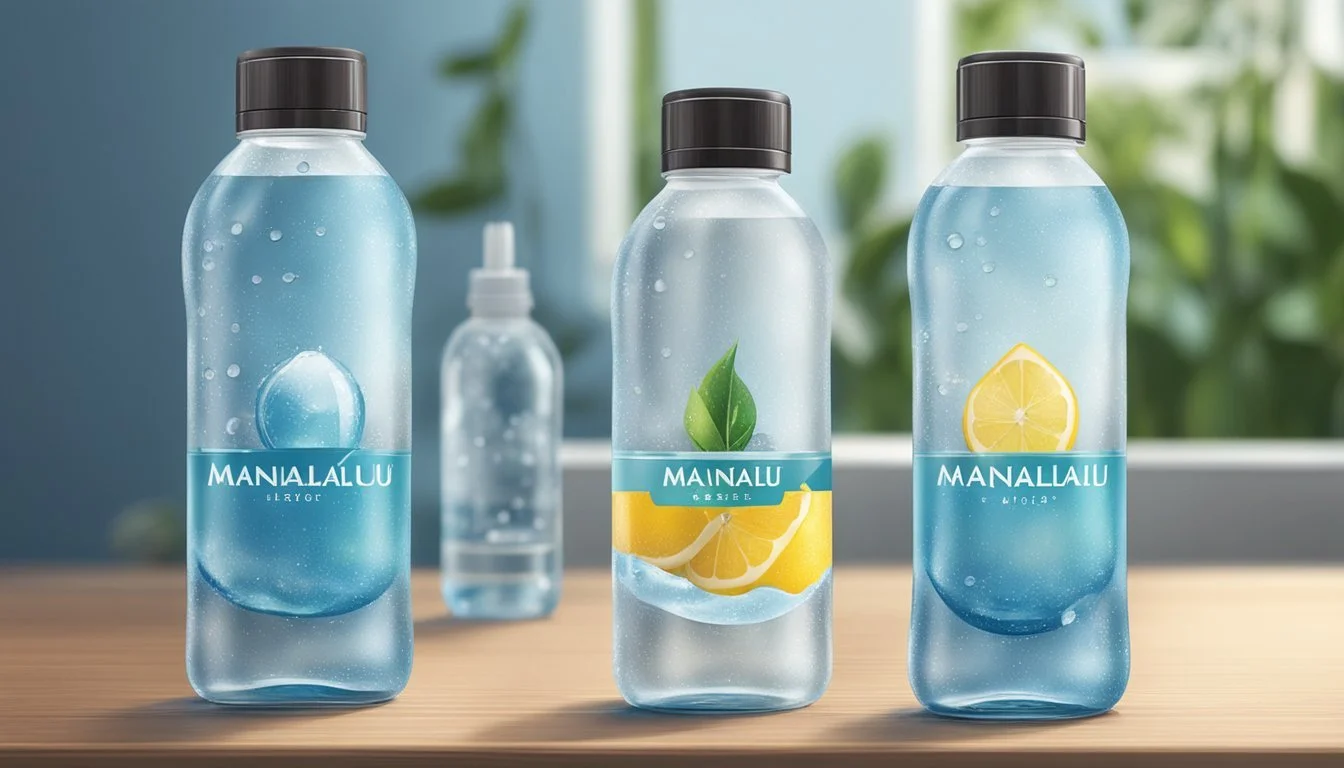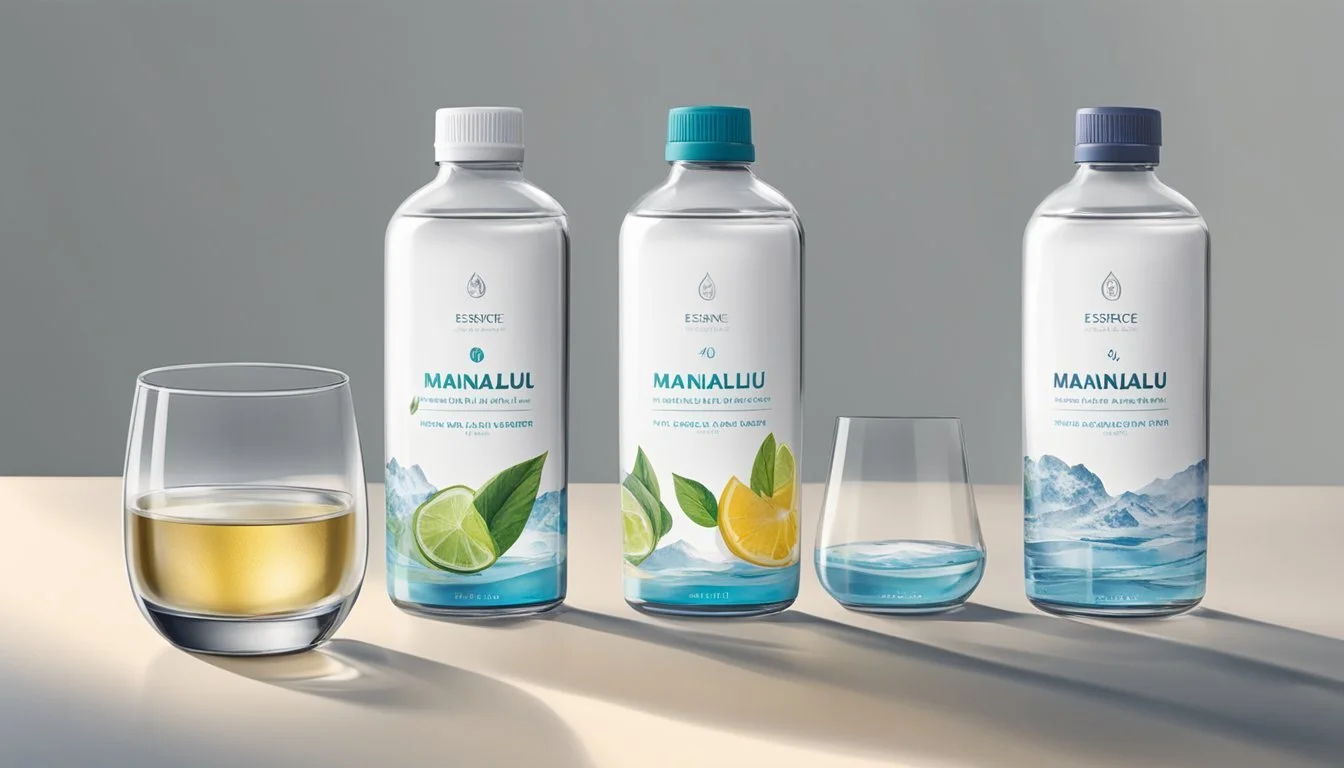Mananalu vs. Essence pH10
Comparative Analysis of Bottled Water Brands
Choosing the right bottled water can be a challenge, especially with so many options available on the market. Two popular contenders are Mananalu, founded by Jason Momoa with a strong environmental mission, and Essence pH10, known for its high alkaline water. When it comes to sustainability, Mananalu sets itself apart with its 100% recyclable aluminum bottles, designed to eliminate single-use plastics.
On the other hand, Essence pH10 focuses on delivering water with a high pH level, aimed at those seeking hydration with added health benefits from its alkaline properties. Consumers looking for eco-friendly packaging might favor Mananalu, while those prioritizing the potential benefits of alkaline water may lean towards Essence pH10.
Each brand brings unique strengths to the table, catering to different priorities and lifestyle choices. Exploring the specifics of their offerings can help you decide which bottled water best meets your needs.
Understanding Bottled Water
Examining bottled water reveals essential aspects related to its basics and its impact on the environment. Grasping both elements provides a comprehensive view for making informed choices.
Bottled Water Basics
Bottled water typically comes from various sources like springs, wells, or municipal supplies. These sources undergo purification processes such as distillation, deionization, or reverse osmosis. This ensures the removal of contaminants and enhances taste.
Common types include spring water, mineral water, and purified water. Spring water comes from underground formations, while mineral water retains natural minerals. Purified water is treated to remove chemicals and impurities.
Each type is tested for contaminants to meet quality standards. Consumers may prefer specific types based on taste, pH levels, or mineral content. Knowing the source and treatment process is crucial for making educated choices.
Environmental Impact of Bottled Water
Bottled water has significant environmental impacts, particularly concerning plastic waste. Single-use plastic bottles account for a sizable portion of global plastic pollution. These bottles often end up in landfills or oceans, contributing to pollution and harming wildlife.
Recycling rates of plastic bottles remain low despite efforts to promote sustainability. Alternatives like aluminum cans or refillable containers are being introduced to mitigate environmental damage. Brands like Mananalu and Waiakea offer water in 100% recyclable containers to reduce plastic waste.
Consumers are encouraged to choose sustainable options and support brands prioritizing environmental responsibility. Opting for reusable containers and advocating for better recycling practices can also make substantial positive environmental contributions.
Profile of Mananalu
Mananalu, founded by Jason Momoa, combines a strong environmental mission with innovative packaging solutions, focusing on sustainability and reducing plastic waste. The aluminum bottles offer a durable and recyclable alternative, underscoring the brand's commitment to quality and the environment.
Origin and Mission
Mananalu, a blend of "mana" and "nalu" from Hawaiian culture, began in 2019, inspired by the environmental passion of actor Jason Momoa. Known for his role as Aquaman, Momoa envisioned a bottle that could decrease plastic waste.
His mission emphasizes sustainability through the use of aluminum bottles, aiming to eliminate single-use plastic. The company's tagline, "Drink One, Remove One," signifies its pledge to remove an equivalent amount of plastic from ocean waste for every bottle sold, in partnership with rePurpose Global.
Water Source and Quality
The water for Mananalu is sourced and purified to ensure high quality and great taste. It is processed through rigorous filtration methods, focusing on delivering clean, hydrating water.
Each bottle undergoes purification to maintain consistency in taste and safety. The focus is on providing purified water without the typical plastic taste, ensuring a refreshed and pleasant experience with every sip.
Packaging Innovations
Mananalu stands out with its use of 100 percent recyclable aluminum cans. This choice not only aligns with their environmental goals but also offers a more durable and refillable option compared to traditional plastic.
The sleek design includes a resealable aluminum bottle, which makes it a convenient and sustainable choice for consumers. By promoting the use of aluminum, Mananalu aims to significantly reduce plastic pollution and encourage recycling efforts.
Every aspect of the packaging, from the materials to the design, reflects the brand's dedication to sustainability and reducing environmental impact.
Profile of Essentia
Essentia water stands out for its structured approach to purification and enhancement, delivering a product with high pH, and additional health benefits. Key aspects include its rigorous purification process and the infusion of electrolytes.
Company Overview
Essentia Water, founded in 1998, aims to redefine hydration with its enhanced bottled alkaline water. The company prioritizes purity and optimal pH balance. Essentia's water is known for having a pH level of 9.5 or higher, ensuring it is one of the most alkaline options available. This high pH, combined with added electrolytes, makes their product unique in the bottled water market. Essentia's mission focuses on improving health and wellness through advanced hydration solutions.
Purification Process
Essentia employs a comprehensive purification process involving micro-filtration, reverse osmosis, and ultraviolet exposure. This multi-step method ensures the water achieves 99.9% purity. After purification, the water is ionized to enhance its alkalinity, achieving a pH level of 9.5 or higher.
During the final stage, electrolytes such as calcium, magnesium, and potassium are added to improve taste and hydration. These steps create a crisp, clean taste and ensure that the water remains free from contaminants. The meticulous process highlights Essentia's commitment to high-quality, safe bottled water.
Health and Hydration Benefits
Essentia water claims to offer superior hydration due to its high pH level and electrolyte infusion. The elevated pH helps balance the body's acidity levels, which is believed to improve overall health. Hydrating with alkaline water may support better skin health, improve energy levels, and promote detoxification.
Electrolytes play a crucial role in maintaining optimal hydration by ensuring proper fluid balance within cells. Essentia's added minerals like calcium, magnesium, and potassium can aid in muscle recovery and overall well-being, making it a popular choice among health enthusiasts and athletes.
Comparative Analysis
The analysis focuses on water quality, taste, packaging, environmental impact, and availability, comparing Mananalu and Essence pH10. These aspects will highlight the strengths and potential drawbacks of each brand.
Water Quality and Purity
Mananalu offers purified water sourced and filtered to remove impurities. Its purification process ensures clean and safe drinking water.
Essence pH10 provides alkaline water with a pH level of 10. The high pH level aids in neutralizing acidity in the body. It is sourced from natural springs, providing a mineral-rich beverage, made especially for health-conscious consumers looking for alkaline properties.
Mananalu: Purified water, safe, clean
Essence pH10: Alkaline water, pH 10, mineral-rich
Taste Profile
Mananalu's water has a crisp and fresh taste that is free from any plastic or metallic flavors, thanks to its aluminum packaging.
Essence pH10's alkaline water has a smooth and slightly sweet taste, which is usually preferred by those who enjoy alkaline water due to its unique mineral content.
Mananalu: Crisp, fresh, no flavor interference
Essence pH10: Smooth, slightly sweet, mineral-rich
Packaging and Environmental Considerations
Mananalu uses 100% recyclable aluminum bottles. The brand aims to reduce single-use plastics, promoting a more sustainable option.
Essence pH10 generally uses plastic bottles, with some options also available in glass. While recyclable, plastic is less eco-friendly compared to Mananalu’s aluminum.
Mananalu: Recycled aluminum, sustainable, reduces plastic use
Essence pH10: Plastic/glass bottles, recyclable, not as eco-friendly
Availability and Distribution
Mananalu water is available through various retail outlets and online platforms, with growing distribution channels, making it accessible.
Essence pH10 is found primarily in health food stores and certain grocery chains. Its distribution might be slightly more limited compared to mainstream brands.
Mananalu: Widely available online and retail
Essence pH10: Available in health stores, selected grocery chains
Consumer Considerations
Consumers looking at Mananalu and Essence pH10 must weigh factors like cost, health benefits, and environmental impact. Both brands aim to offer safe drinking water but take different approaches in pricing, health implications, and sustainable packaging.
Price Comparison
Mananalu is positioned at a moderate price point, partly due to its eco-friendly packaging of 100% recyclable aluminum cans. The cost reflects its environmental mission to reduce single-use plastic. Essence pH10, on the other hand, markets itself as a premium option, often featuring sophisticated filtering technology. This results in a higher cost per liter, appealing to consumers who prioritize perceived quality over price.
Health Implications
Mananalu offers purified water, claiming to meet high safety standards. There's no emphasis on added health benefits, focusing instead on the purity and taste of the water due to its packaging. Essence pH10 highlights its alkaline water properties, boasting potential health benefits such as improved hydration and pH balance. Consumers concerned with specific health benefits might find Essence pH10's claims more appealing, though they should evaluate scientific support for such claims.
Environmental Responsibility
Mananalu's primary selling point is its commitment to sustainability. By using aluminum cans, it provides an eco-friendly and fully recyclable alternative to plastic bottles. This resonates with consumers prioritizing environmental responsibility. Essence pH10 uses recyclable plastic, but it does not match the environmental sustainability of Mananalu's aluminum cans. Consumers concerned with the environmental impact will likely favor Mananalu due to its stronger commitment to reducing plastic waste.
Industry Insights and Alternatives
In examining the water industry, several trends and alternatives highlight the evolving landscape, focusing on eco-conscious packaging, leading water brands, and innovative practices.
Water Industry Trends
The bottled water market is experiencing significant shifts driven by consumer awareness of environmental sustainability. There is an increasing preference for products that offer eco-friendly packaging, such as aluminum and recycled materials, over traditional plastics. Brands like Mananalu are capitalizing on this trend by using 100% recyclable aluminum cans, aiming to reduce plastic waste.
Consumers are also showing an interest in water that boasts natural origins and health benefits. Brands like Evian, Fiji, and Voss market their water as pure, sourced from pristine locations. This trend reflects a broader demand for transparency in sourcing and production.
Technological advancements in water purification also play a role. Enhanced filtration and mineral restoration methods are becoming mainstream, providing water that is not only clean but also enriched with essential minerals.
Alternative Water Brands
The market offers several alternatives for those seeking bottled water options other than Mananalu and Essence pH10. Dasani and Aquafina remain prominent due to their widespread availability and pricing. Meanwhile, Smartwater and Core Hydration cater to those looking for added electrolytes and balanced pH levels.
Brands like Boxed Water, JUST Water, and Flow are pioneering the shift towards sustainable packaging. Boxed Water uses recyclable paper cartons, while JUST Water utilizes plant-based plastic alternatives.
High-end brands like San Pellegrino and Penta are known for their distinctive taste profiles and mineral content. On the other hand, Mountain Valley and Icelandic Glacial emphasize the purity of their sources, appealing to those seeking natural and unprocessed water.
The Rise of Eco-Conscious Packaging
Environmental concerns have led to a shift towards more sustainable packaging within the water industry. Aluminum and glass bottles are gaining traction as they are infinitely recyclable and reduce dependency on single-use plastics. Mananalu’s initiative to use 100% recyclable aluminum cans is a notable example.
Repurpose Global and other similar organizations are working with brands to offset their plastic footprint. This includes initiatives like recycled corrugated packaging and partnerships aimed at promoting global sustainability.
Innovations in biodegradable packaging materials are also emerging, providing alternatives that decompose naturally without harming the environment. These efforts reflect a broader industry commitment to combating plastic pollution and promoting responsible consumption.
More About Mananalu
Hawaiian Springs vs Mananalu: Which Bottled Water is Better?
Icelandic Glacial vs Mananalu: Which Bottled Water is Better?
Mananalu vs Cascade Mountain: Which Bottled Water is Better?
Mananalu vs Kirkland Signature: Which Bottled Water is Better?
Mananalu vs Richard's Rainwater: Which Bottled Water is Better?
Mananalu vs Talking Rain AQA: Which Bottled Water is Better?
Mananalu vs Whole Foods Italian Still Mineral water: Which Bottled Water is Better?
Mountain Valley Spring Water vs Mananalu: Which Bottled Water is Better?
Nestle Pure Life vs Mananalu: Which Bottled Water is Better?
More About Essence pH10
Aqua Carpatica vs Essence pH10: Which Bottled Water is Better?
Cascade Mountain vs Essence pH10: Which Bottled Water is Better?
Core Hydration vs Essence pH10: Which Bottled Water is Better?
Crystal Geyser vs Essence pH10: Which Bottled Water is Better?
Crystal Lake vs Essence pH10: Which Bottled Water is Better?
Hawaii Volcanic vs Essence pH10: Which Bottled Water is Better?
Hawaiian Springs vs Essence pH10: Which Bottled Water is Better?
Ice Mountain vs Essence pH10: Which Bottled Water is Better?
Icelandic Glacial vs Essence pH10: Which Bottled Water is Better?
Kirkland Signature vs Essence pH10: Which Bottled Water is Better?
Liquid Death vs Essence pH10: Which Bottled Water is Better?
Mountain Valley Spring Water vs Essence pH10: Which Bottled Water is Better?
Nestle Pure Life vs Essence pH10: Which Bottled Water is Better?
Poland Spring vs Essence pH10: Which Bottled Water is Better?
Proud Source vs Essence pH10: Which Bottled Water is Better?
Purely Sedona vs Essence pH10: Which Bottled Water is Better?
Richard's Rainwater vs Essence pH10: Which Bottled Water is Better?
San Pellegrino vs Essence pH10: Which Bottled Water is Better?
Simple Truth vs Essence pH10: Which Bottled Water is Better?
Solan de Cabras vs Essence pH10: Which Bottled Water is Better?
Talking Rain AQA vs Essence pH10: Which Bottled Water is Better?
Whole Foods 365 vs Essence pH10: Which Bottled Water is Better?
Whole Foods Italian Still Mineral water vs Essence pH10: Which Bottled Water is Better?







